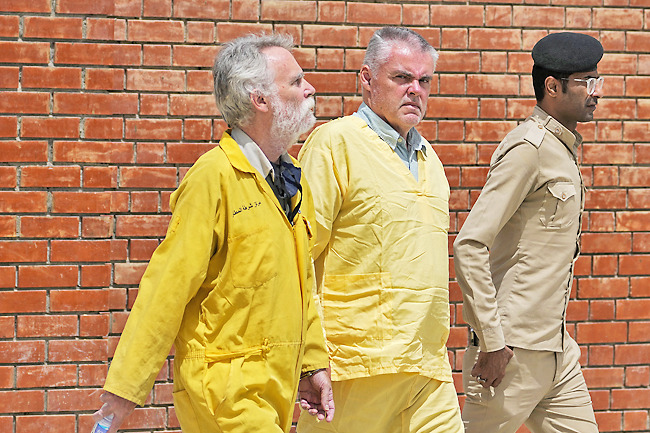BAGHDAD (AP) – A British citizen was sentenced yesterday by an Iraqi court to 15 years in prison on charges of smuggling artefacts out of the country, in a case that has attracted international attention.
The verdict handed down to retired geologist Jim Fitton, shocked the court in Baghdad, including his defence attorney. He and his family have argued that Fitton, 66, had no criminal intent.
“I thought the worst case scenario would be one year, with suspension,” Fitton’s lawyer Thair Soud, visibly shocked, told The Associated Press.
A German national tried with Fitton was found not to have criminal intent in the case and will be released.
But Judge Jabir Abd Jabir found that by picking up the items, found to be artefacts dating older than 200 years according to a technical government investigation, and intending to transport them out of the country, Fitton had criminal intent to smuggle them.

The judge did not consider Soud’s arguments that laid out Fitton’s ignorance of Iraqi laws and the value of the items he pitched up. Fitton and the German national, Volker Waldman, were arrested in Baghdad airport on March 20 after airport security discovered the items in their luggage. They had been part of a tourism expedition across the country’s ancient sites.
Fitton’s family grew worried when he did not arrive on a scheduled flight back to Kuala Lumpur, where he resides with his wife, on March 20. They later learned that Fitton, a well-travelled geologist for oil and gas companies, had been taken to an airport holding cell where he was still being detained, Fitton’s daughter Leila told AP last month.
The case garnered attention when, frustrated by perceived inaction on the part of the British Foreign Office to intervene and assist in Fitton’s case, his family started a petition that has garnered over 100,000 signatures. The British diplomatic mission in Baghdad has not commented on its involvement in the case.
In total, 12 fragments of pottery and other shards were found in Fitton’s possession by Iraqi authorities, all of them collected as souvenirs, Fitton’s family said, during a group tourism expedition to Eridu, an ancient Mesopotamian site in what is now Dhi Qar province.



















































